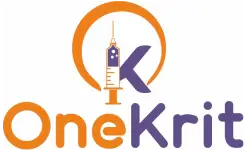Subtotal $0.00
Critical care medicine is one of the essential fields in the rapidly changing environment of modern healthcare that can neither be underestimated nor undervalued. This is a specialized field of medicine that is concerned with diagnosing and treating life-threatening illnesses that need close monitoring and high surveillance.
It could be a patient who is hard to respire due to a serious infection, a person who has undergone a serious operation, or an accident victim with multiple injuries; critical care medicine is at the center of offering them a fighting chance to survive and get better.
Understanding Critical Care Medicine
Critical care medicine is a method of treating patients who are critically ill or unstable in intensive care units (ICUs). Multidisciplinary teams are assembled, including intensivists, nurses, respiratory therapists, nutritionists, and pharmacists, to optimize outcomes.
As a result of the increasing pace of medical advancement, intensive care units now have advanced equipment such as ventilators, dialysis machines, and heart monitors to keep patients stable while their bodies recover.
Role of Intensivists and the ICU Team
Intensivists make arrangements with other specialists, including surgeons, cardiologists, neurologists, and anesthesiologists, to provide whole care. They just need to make decisions based on evidence very quickly, and these decisions can save a life or they can not.
Nursing staff provide 24/7 care for the patients and are trained to detect the smallest deviation in their condition and act accordingly. The doctor, nurses, and ancillary staff work together to ensure that even the smallest aspects of patient care – delivery of medication and emotional support among them are treated with thoughtfulness and compassion.
Common Conditions Managed in Critical Care
Critical care medicine encompasses a variety of severe medical crises. Among the most popular ones are:
- In fulminant respiratory failure, e.g., pneumonia, ARDS, or COVID-19.
- Septic shock which is a life-threatening reaction to an infection that involves multiple organs.
- Rescue from a cardiac arrest or heart attack, where time and quality (response and advanced cardiac life support) matter most.
- An extremely stressful past or head injury, mostly caused by accidents.
- After surgery of patients who have undergone a complicated surgery.
The Impact of Technology in Critical Care
Dialysis machines are used to aid in the elimination of waste in cases where the kidneys are malfunctioning. Infusion pumps can deliver precise doses of drugs or nutrients. Critical care is being transformed with the application of artificial intelligence (AI) and data analytics. The predictive algorithms can warn the doctor of possible complications before they occur, and therefore, preventive treatment is possible.
Human Compassion: The Heart of Critical Care
Although technology is important, the human factor cannot be replaced. Whether it is expertise or empathy, critical care medicine is all about the latter. Families are usually subjected to mood swings as their loved ones struggle to survive. The ICU team does not just deal with the medical aspect of it, but it also offers psychological support to the patients and their families.
Even minor expressions such as effective communication, consoling, and emotional awareness can be significant. The key aspect of critical care is the skill of medical workers to reconcile the latest science with sincere compassion.
Challenges and the Road Ahead
Although it has been able to achieve that, critical care medicine is challenged. The system has the potential to be overwhelmed by limited ICU capacity, a lack of trained personnel, and increased healthcare expenditures.
As the tele-ICU systems, personalized medicine, and robotics continue to develop, the field is shifting towards more efficient and accessible care. Globally, there is a growing awareness of the importance of critical care in saving lives and an increase in training.
Critical care medicine actually is the foundation of modern healthcare; it is the line separating hope or despair, life and death. It is the greatest achievement of medical science, technology, and humanity. Every one of these lives saved in an intensive care unit is a tribute to the excellence of medical systems as well as the hard work, humility, and determination of those who are capable of saving lives.


Comments are closed